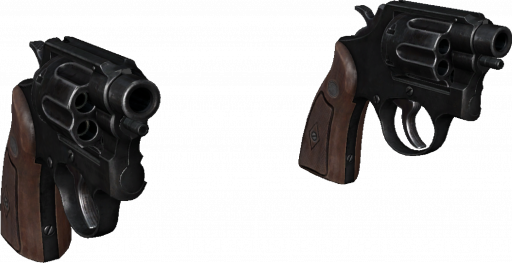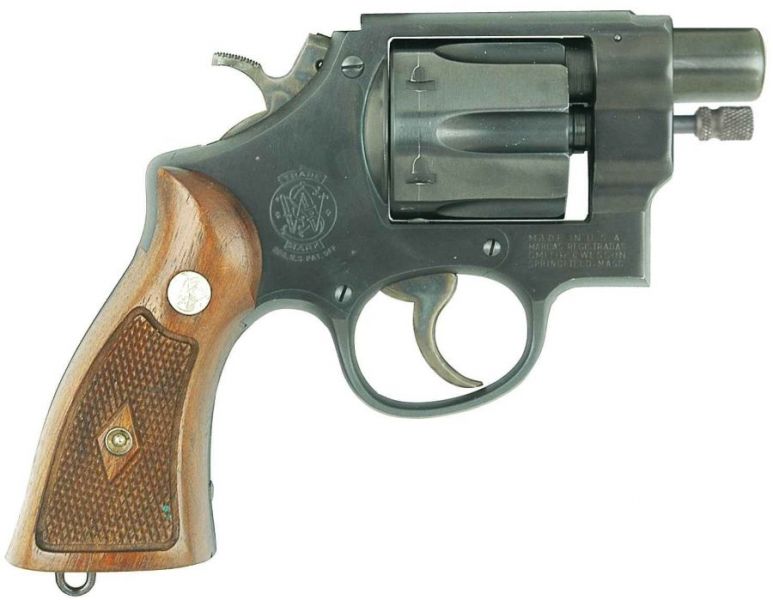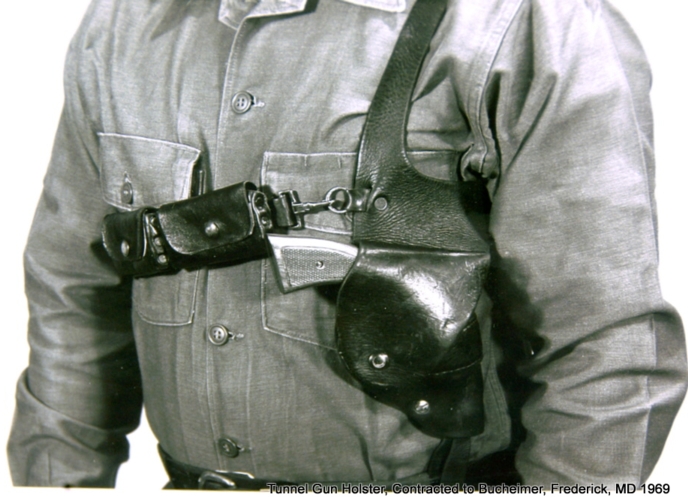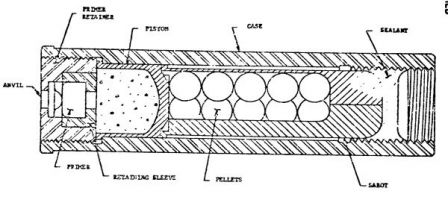Dual QSPR
| Factions | Weapon | Icon | Classes | Ammo |
|---|---|---|---|---|
 US |
 Dual QSPR |
  |
Gun Game Zombies |
12 / 36 |
| Damage Base | Headshot × | Chest × | Stomach × | Leg × | Arm × | Reload Speed | |
|---|---|---|---|---|---|---|---|
| Partial | Empty | ||||||
| 42 | ×3.7 = 155.4 | ×2.4 = 100.8 | ×2.3 = 96.6 | ×1.3 = 54.6 | ×0.95 = 39.9 | Seconds | Seconds |
| Designation | Weapon Type | Fire Modes | Fire Rate | Bullet Spread ° | Range Modifier | Muzzle Velocity | Projectile weight | Weight |
|---|---|---|---|---|---|---|---|---|
| [[]] | Dual Revolvers | Single+Double | 400 RPM | 14° & 8° ADS | 0.85 | 231 m/s | 9.5 g (146.61 gr) | 2 kg (4.41 lbs) |
| Full name | Caliber | Place of Origin | Date | Manufacturer | Barrel Length | Total Length | Weapon Script Name |
|---|---|---|---|---|---|---|---|
| FN | .38Special | United States Of America | D8 | ARM | in ( mm) | in ( mm) | weapon_dual_qspr |
The Quiet Special Purpose Revolver (QSPR), also known as the "tunnel rat revolver," was a modified version of the Smith & Wesson Model 29 designed for use by U.S. forces during the Vietnam War. It was specifically created for "Tunnel Rats"; soldiers tasked with exploring and clearing Việt Cộng tunnel systems. The QSPR was chambered in a special silent, low-velocity cartridge that used a piston to trap gases within the casing, significantly reducing noise and eliminating muzzle flash, making it ideal for close-quarters combat in tunnels. Its primary role was to neutralize enemies in confined spaces without compromising the soldier's position.
HISTORY
The Quiet Special Purpose Revolver (QSPR) was developed in response to a 1967 US Army requirement for a low-sound, close-combat weapon for tunnel warfare during the Vietnam War. Designed by AAI Corporation with the Army’s Land Warfare Laboratory, the QSPR revolver used a modified Smith & Wesson Model 29. It fired a "captive piston" cartridge, which trapped gases inside the case, minimizing noise and flash. Each round fired 10 tungsten balls, with a noise level around 110 dB, similar to a suppressed .22 pistol.
Despite field tests in Vietnam, mostly in ambushes rather than tunnels, the QSPR program was discontinued in 1972 as US interest waned with the war's end. Only a small number of QSPRs were produced, and few survive today. Rumors suggest possible use by CIA operatives during the Cold War, but the weapon never officially entered widespread service.
SOURCE
SOURCE
SOURCE



